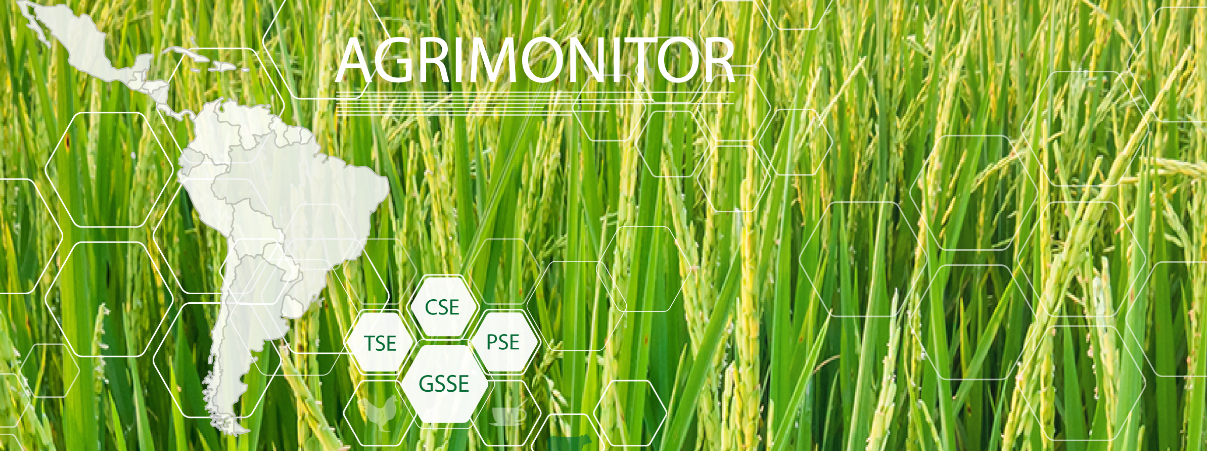Latin America and the Caribbean contribute 11% of the value of world food production and possess 24% of the arable land in the world. Open data is a powerful source of information that can help in making decisions and formulating policies to foster the development of the agricultural sector, and consequently to help improve productivity in the region.
The governments in the region spend US $30 billion on the three types of support that are provided to the agricultural sector. Firstly, there is US $14 billion through price support, which occurs when consumers pay more for the product than they would on the international market, as a result of restrictions to trade or tariffs. Secondly, US $13 billion corresponds to direct payments to producers which are made through targeted subsidies or incentives. Finally, a mere US $3 billion represents gross transfers to general services which are provided to the sector, such as research, development and training, among others.
According to data collected by the Agrimonitor tool of the Inter-American Development Bank between 2003 and 2015, the region has lagged behind compared to the changes observed globally which witness the abandoning of the high dependence of agriculture on price support in exchange for direct payments and general services.
Later, we will show how you can take advantage of the Agrimonitor indicators in the open data portal of the IDB, Numbers for Development to make comparisons between countries and in time on the level of support that states provide to the agricultural sector in each country and how this affects producers and consumers.
1Support that countries in the region grant to the agriculture sector
The indicator Total Support Estimate (TSE%) indicates what percentage of the GDP of a country is represented by public support to the agricultural sector. This indicator reflects and includes all the effects of public policies that differentially affect the agricultural sector, from support to the sector (for example, subsidies) to penalties (for example, taxes).
In Latin America and the Caribbean, this indicator ranges from negative values in Argentina – as a result of the consumers paying a lower price than the international price – up to almost 4% in Nicaragua.
2Producer Support
The term Producer Support Estimate (PSE%) indicates what percentage of producers’ revenue is due to the support provided by agricultural policies.
In Latin America and the Caribbean, the highest support to producers is provided by Jamaica and its producers receive almost 34% of their income from public policies.

3General Support
The General Services Support Estimate (GSSE%) measures the percentage of total support that is provided to agricultural producers (as a group and not individually) through general support (this refers to research, agricultural health services, infrastructure, etc.).
In the region, Chile and Peru are the countries which are most focused on this type of support with percentages of 51 and 58 respectively.
4Consumer Support
The Consumer Support Estimate (CSE%) indicates how agricultural policies affect, as a percentage, the cost of the basket of agricultural products.
Countries such as Argentina and Ecuador support their consumers to the expense of producers while the other countries in the region show an opposite trend.
Now it’s your turn! Explore the open data for the agricultural sector for the region following these steps:
-
Access the multi-indicators report
Enter http://data.iadb.org/ or click the “Data” button on the IDB website and select “Specialized Datasets”.
In the data search area (the blue bar) select the “multi-indicators report” in the drop-down menu under “Find indicator”.

-
Select the indicators
In the indicators’ field in the report, type to select the terms CSE, TSE, GSSE, PSE. Then, select the countries you are interested in and the range of years (up to 5 for both options).
After selecting the options of your interest, you will get a comparative table with the indicator/s as shown below.

-
Share the knowledge and reuse the data!
You can download the information on your computer or you can launch another search, you just need to reset the search filters.

What type of multi-indicator report did you do? Tell us below!
By Carmine Paolo De Salvo, Rachel Boyce, Ivette Fis de Melo from the Inter-American Development Bank (IDB).
About the authors


Leave a Reply